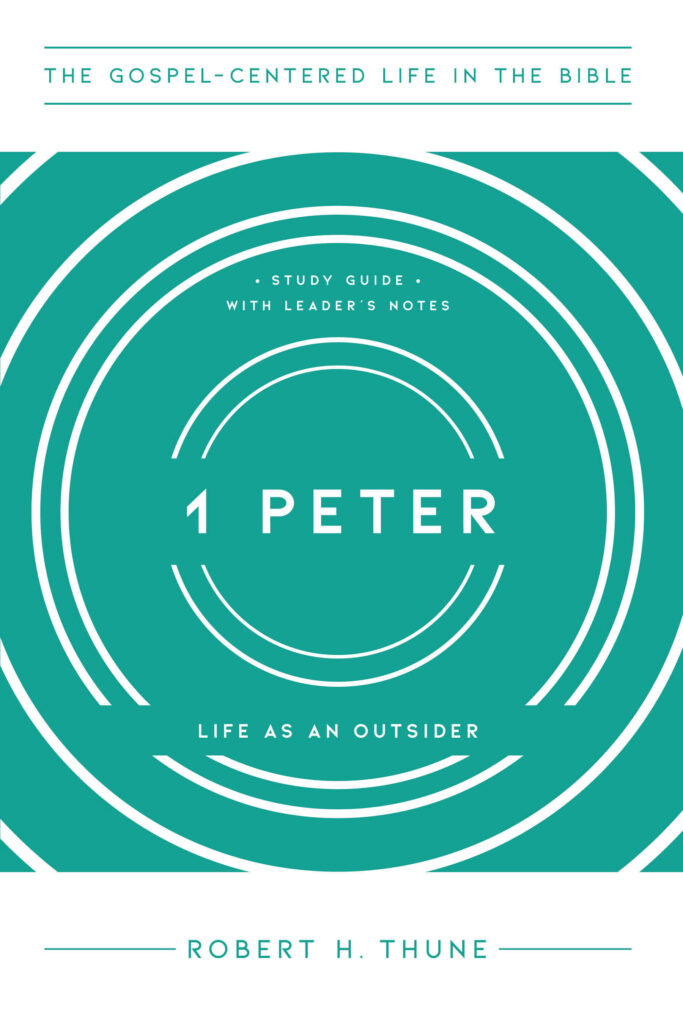Over the past few years, something about our culture has changed.
We all sense it, though we can’t always put it into words. Some say we’ve moved from a world that’s neutral toward Christianity to a more “negative world.” Others say we’re living through the slow death of Enlightenment liberalism. Still others assert that Western society is now fully post-Christian.
Whatever you call it, what we feel around us is undeniable: an increasing disdain for Christianity. An unraveling of social cohesion. A fragmented political landscape. The undermining of traditional institutions.
We knew—or at least thought we knew—what Christian witness looked like in the America of our parents and grandparents. But something about this new terrain feels unsettling. We know that Jesus Christ is Lord, and we’re confident that his gospel changes people. But we’re struggling find our missionary footing in the current moment.
And that’s why we need the First Epistle of Peter.
History Repeats Itself
This moment in our culture might seem new to us, but it’s not new in redemptive history. At many times, in many places, the people of God have had to live as “outsiders” in the culture around them. In 313 AD, Christianity was officially pronounced a legal religion in the Roman Empire. But for the first three centuries after the life and death of Jesus, Christians were opposed, marginalized, and persecuted. They had to learn how to inhabit their culture as “aliens and strangers.” They had to learn how to live as outsiders.
When Peter wrote his first epistle, he wrote to a minority church scattered throughout the empire. His readers had little cultural power; they owned little property; they did not enjoy favor with the authorities. Peter borrowed the language of the Jewish diaspora, hearkening back to the familiar Old Testament theme of exile: “Peter, an apostle of Jesus Christ, to those who are elect exiles of the Dispersion . . .” (1 Peter 1:1). It’s as though he’s telling the early Christians: life as an outsider is our vibe. This is what we do. This is what God’s people have always done.
Getting Turned Inside Out
For most of American history, Christians have been “insiders” in the broader culture. Many of the founders were Christians, and even those who weren’t showed general respect toward the Judeo-Christian heritage. In almost every American town and village, churches dotted the town square, forming a key link in the social fabric that held people together. Clergy were respected. The Bible was revered. Christian virtue was appreciated.
In that world, Christian mission seemed relatively straightforward: live a faithful life, proclaim the gospel with your words and actions, invite your neighbors to church. Even if they disagreed with you, non-Christian friends and neighbors treated you with respect. No one would have called you a bigot, an oppressor, or an extremist.
But times are changing. Christianity is being pushed out of the center and into the margins of culture. Christians have become outsiders.
Making the Best of an Uncomfortable Situation
How about you? In what ways do you feel like an outsider? How do you sense the cultural winds shifting in your own world and within your own relationships? Does it feel like a loss? Or does it feel like an opportunity?
Many churches and Christians are still doing ministry like we did sixty or seventy years ago. Rather than learning how to live as outsiders, we’re fighting to retain our position as cultural insiders. We’re lamenting the church’s lost influence; we’re fretting about our society’s moral devolution; we’re hunkering down to preserve what’s precious to us.
But what if we’re missing the opportunity that’s right in front of us? Could it be that ministry from the margins is even more fruitful than ministry from the mainstream?
Early in my career, I served on staff with a parachurch campus ministry. I was assigned to do gospel ministry in the fraternity system. But I’d never been in a fraternity. I didn’t share the tight-knit bonds of brotherhood that marked each chapter; I didn’t have any existing relationships to leverage; I didn’t have any credibility within that social sphere. When I walked into a fraternity house, I got the same blank stares as a salesperson or a delivery driver.
And yet being an outsider led to deeper communion with God and deeper creativity in mission. I found myself praying more; trusting God more; reading Scripture more. I became more courageous in starting conversations and more strategic in seeking opportunities for gospel ministry. Over time, God moved, and a small spiritual revival began within the fraternity system. But it sure wasn’t easy. Faithful Christian witness as a cultural outsider took patience, prayer, and a healthy dose of suffering.
We’re all outsiders now. And that’s why understanding the wisdom of 1 Peter is so crucial. “Rejoice insofar as you share Christ’s sufferings,” Peter writes. “If you are insulted for the name of Christ, you are blessed, because the Spirit of glory and of God rests upon you” (1 Peter 4:13–14). Peter understood that suffering, persecution, and social ostracism are part and parcel of gospel ministry. If we’ll attend to his teaching, he’ll help us find our footing as “strangers in the world”—hopeful, joyful citizens of God’s kingdom living as temporary residents here.
1 Peter: Life as an Outsider
Displaced—that’s what it feels like to be a Christian in an increasingly post-Christian world. You speak the language and understand the culture, yet don’t quite feel at home. How do you live as a Christian in a world that doesn’t share your convictions? Can you still hold firmly to biblical truth even as you love others? Robert Thune unpacks how the apostle Peter spoke to these issues in the first of his letters to first-century Christians.






